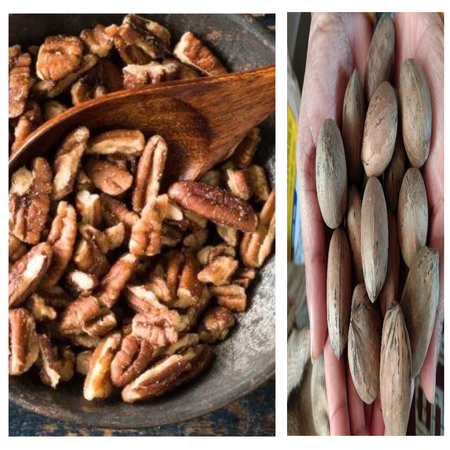New Delhi, March 27 (IANS). In appearance, it is like walnuts. Its shell is golden brown from outside and these nuts are beige in color from inside. It contains 70 percent more fat than other nuts. In India, it is also called Bhidurkash Fruit, which are mainly grown in Jammu and Kashmir and Himachal Pradesh. A research has claimed that eating 2 ounces i.e. a handful of peak nuts can be curbed many problems.
It is a snack rich in America’s highly popular crunchy nutritional value. People especially in North America and Mexico include it prominently in their diet.
A recent study published in the American Journal of Clinical Nutrition found that a handful of this popular walnut is taken care of your heart instead of his favorite breakfast, because it contains plenty of antioxidants, monounsaturated fats and fiber – all these help in fighting heart diseases.
The 12 -week study included 138 adults. These included people who had a risk factor in their bodies. Either he was struggling with high BP, high cholesterol, high sugar level or high BMI.
Half of the participants ate the same as they ate as they ate daily, while the rest were instructed to eat 2 ounces of peaks per day. The study was funded by the American Pekan Council.
It was found that those who were in the peak -eating groups, their heart related problems decreased significantly. However, there is also a warning about this. The study did not find that eating peakon has a great effect on vascular health (vascular health) – which means that its intake does not show that your blood vessels work well, although researchers expected that it would have an impact on blood vessels.
Participants of the peak -eating group also increased average by an average of 1.5 pounds – possibly because the peak has about 200 calories per ounces.
In addition to the effects of heart health, the study found that the overall quality of the diet of these nuts was increased by 17 per cent. Which strengthens the belief that the peak can be part of a healthy diet, especially if it is the option of low healthy snacks.
The study also matches previous researches, such as a 2021 study that found that consuming 68 grams of peaks per day for eight weeks reduced the total cholesterol in the participants by about 5% and “poor” LDL cholesterol reduced by 6.4 percent to 9.5 percent.
-IANS
KR/










